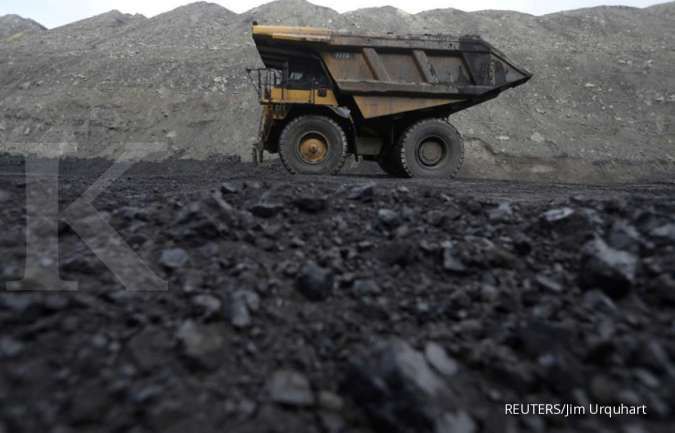ILLUSTRATION. The government is selling out incentives for downstream mining, including for coal commodities.
Reporter: Ridwan Nanda Mulyana | Editor: Khomarul Hidayat
KONTAN.CO.ID – JAKARTA. The government is selling out incentives for downstream mining, including for coal commodities. Incentives are provided in both fiscal and non-fiscal forms. This incentive sale is provided through Law Number 3 of 2020, aka the Minerba Law, as well as the Job Creation Law aka Omnibus Law.
Non-fiscal incentives are provided in the form of licensing convenience, which can be extended to the life of the mine reserves for integrated coal downstreaming. While the fiscal incentive is in the form of a royalty of 0%
Executive Director of the Indonesian Coal Mining Association (APBI) Hendra Sinadia positively welcomed the incentive. According to him, fiscal incentives are needed to improve the economics of the coal downstream project. Meanwhile, non-fiscal incentives in the form of licensing guarantees are needed to ensure investment.
Hendra said that the certainty of this permit is important because coal downstreaming is a long-term project with a lifespan (life time project) 25 years-30 years, even more. Meanwhile, if the holder of the Coal Mining Exploitation Work Agreement (PKP2B) is extended and becomes a Special Mining Business Permit (IUPK), the licensing period is limited to 20 years (2×10 years).
“So there must be certainty. Because IUPK permits are limited to 2×10 years, while long-term (downstream) projects can be more than 30 years,” Hendra told Kontan.co.id, Sunday (18/10).
Also Read: There is a 0% royalty incentive in the Job Creation Law, how is the effect on coal issuers?
It’s just that, he emphasized, business actors are still waiting for detailed regulations related to licensing incentives. Hendra hopes that the implementing regulations for the Minerba Law and Omnibus Law through Government Regulation (PP) can be issued soon.
“Details of the regulation, how to grant the permit for downstreaming, are awaited in the PP,” said Hendra.
Not enough
Even though there are fiscal and non-fiscal incentives, Hendra thinks it is not enough. He said, a number of other incentives and support from the government are still needed so that the downstream development of coal can run.
First, Hendra requested that there be further fiscal incentives, namely in the form of tax exemptions or tax holiday. Especially for imports of capital goods used in coal downstream projects.
Second, there is regulatory consistency. Hendra hopes that the changes in regulations in the past mining legal regime will not be repeated. The reason is, the Minerba Law has been amended within 11 years, as well as repeated changes in PP and Ministerial Regulations (Permen). “Don’t get in the middle of changing roads,” he said.
Third, there is a guarantee related to market absorption of coal downstream products, as well as certainty of the price. “Who wants to buy it? After someone buys it, what is the selling price? This is a substitute product, for example DME for LPG, what will the selling price be?” said Hendra.
According to him, incentives and certainty are needed because the downstreaming of coal requires large and long-term investment. Moreover, funding for coal projects has also become increasingly difficult. Not only because of the covid-19 pandemic conditions, before that a number of banks and funding institutions had indeed left the coal project.
“If building a (coal downstream project) is US $ 2 billion, there is US $ 3 billion. Access to funding is also difficult, so cost of fundmore expensive. That makes economic calculations even harder, “said Hendra.
Also Read: About the promise of incentives for coal mining business permits, this is IMA’s response
DONATION, Get Free Vouchers!
As an expression of gratitude for your attention, there are free vouchers worth donations that can be used shopping at HAPPY STORE.
– –
<!–
Reporter: Ridwan Nanda Mulyana
Editor: Khomarul Hidayat
– <!–


